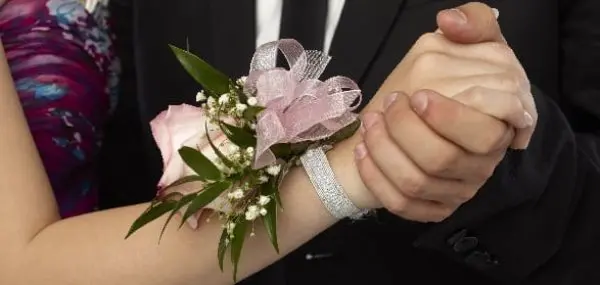We teach our teenagers math, science, and history. We help them perfect the art of scoring a goal or playing the trumpet. We talk to them about music, books, and movies. And yet somehow, some of the most necessary lessons in life get glossed over. Dating and relationships are activities that our teenagers will engage in, either now or as adults, yet many of us let our kids muddle through teenage relationships without guidance. We cross our fingers and hope they make it through to adulthood unscathed. Just like any other skill, however, we must teach our teenagers how to be in relationships.
And we must support our teenagers as they figure it out.

So … where to start?
Before giving any teenage relationships advice, take time out to remember your past. How old were you when your hormones kicked in and you eagerly anticipated your first kiss? Were you scared to talk to the object of your affection, or did it come naturally for you? Did you have teenage relationships? Were you comfortable talking to your parents about them? Did your values match those of your parents? How has your story unfolded?
Each person’s pages are filled with unique knowledge and experiences that have made them who they are. It would be wrong to expect all parents to teach their teenagers the same curriculum for life. Conversations about dating and relationships are complex. Each parent should ponder what to say. In addition, be mindful that past experiences will come into play, as will values and beliefs.
This template is designed to assist with moving forward to have the conversations that you need to have. It isn’t a script, but it will help pave the way for logical discussions with your teenager. And you will be more prepared to you say what you want in an organized and thought-out manner. Take time to turn the questions over in your mind as these are important lessons for your child. Building a foundation of trust and reciprocity will go a long way.
Guide to Teaching Teens How to Be in a Relationship:
1. Share your own stories.
First, think about the message you want to pass on to your teenager and pick a story from your past about an experience with dating and relationships that will set the tone for the conversation. When a parent shares his or her story, it starts a conversation and creates a dialogue, as opposed to coming off as a lecture.
2. Convey your values and beliefs.
Next, think about what values and beliefs do you want to pass on to your teenager? This is a tricky thing, as he may not agree with you. Open yourself up and allow for opinions to be expressed. Having an open mind will be more conducive to your relationship and to the conversations to follow. While it’s okay to disagree, trying to get your point across with force, shame, or fear will cause your teenager to withdraw. You’ll want to keep this conversation going. Using a lot of “what-if” scenarios will help illustrate your point of view.
3. Coach them on appropriate behavior.
Remember teaching your toddler her manners? Teaching teens about dating and relationship “etiquette” is no different. The foundation of all interaction is built on kindness and respect. More “what-if” scenarios can help your teen understand how to approach new situations. Additionally, your culture or religion might have certain customs you’d like to pass on.
4. Reinforce the importance of clear communication.
Finally, how to communicate. Lack of communication can cause serious problems in dating and teenage relationships. Your teenager must understand the importance of knowing what is acceptable or not in terms of how he wants people to treat him and how he will treat others. How and what to communicate to his partner will be a life-long learning process.
Keep in mind—a parent can’t cover all of the conversational ground about dating and relationships in one sitting. These conversations should be ongoing and ever-evolving. Be sure to ask your teen questions about her experiences, and keep telling stories of your own. Stories from your past are interesting to her and are the ultimate ice-breakers.

Good luck and take your time. Remember—this can be a fun experience that creates a strong bond between you and your teen.




